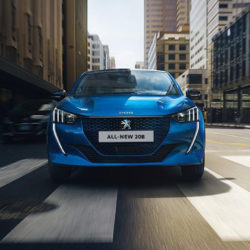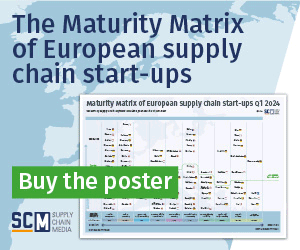PSA and LeasePlan utilize scenario planning for sustainability

Most people think that when something is finished, it’s over and done with. But according to Ben van den Burg, chair of the NEVI Nyenrode Congress that was held on 11 September, it is important for companies to have a ‘continuous improvement’ mindset. At the event, Rijkswaterstaat (Dutch Ministry of Infrastructure and Water Management), PSA and LeasePlan explained how they are focusing on continuous improvement in the context of the latest trends in the mobility sector.
By Marysa Vos
There are plenty of changes affecting infrastructure and mobility in the Netherlands and beyond. Developments such as the growing number of freelance professionals, the Paris Climate Agreement and new technological innovations such as electric vehicles are all contributing to a shift in market demand. “The biggest challenges for PSA are short-term and long-term forecasting, and ensuring that the company is ready for the various ‘what-if’ scenarios,” said Francesca Gamboni, Senior VP Supply Chain at Groupe PSA. On the one hand PSA is a highly efficient car manufacturer of the Peugeot and Citroën brands, and on the other it is a mobility provider focused on building lifetime customer relationships with various dealers, companies such as LeasePlan and also – indirectly – consumers.
Different supply chain needed for electric cars
One key focus area for PSA right now is carbon emissions, which must be reduced by 37.5% by 2030. The manufacturer has already taken various steps towards achieving this, and more are planned for the years ahead. By 2023, for example, around 80% of all the cars it manufactures will be plug-in hybrids or all-electric vehicles (see image: Peugeot all-electric car).
The electrification of cars also means that PSA’s supply chain will change dramatically over the coming years. ‘For electric cars, we need 300 new parts from companies with which PSA currently has no relationship,” explained Gamboni. The instability of some of those new components makes the supply chain even more complex. “For example, a battery for an electric vehicle must be transported under specific conditions,” he added. To reduce the transport-related carbon emissions both upstream and downstream, PSA is investing in transport engineering and an efficient transport management system (TMS), and is tracking containers to tackle waste.
Scenario planning
LeasePlan, a vehicle leasing company with 1.7 million vehicles in over 30 countries, is also using tools such as scenario planning to help it think about the future. It is important that Purchasing is aware of any changes in the market, because the vehicles it owns account for 80% of the leasing company’s revenue. “At LeasePlan we manage the entire lifecycle of our vehicles, from acquisition, maintenance and repairs to the sale of end-of-lease vehicles,” said Maartje Tongeren, Director Service Delivery at LeasePlan.
Therefore, if the customer’s needs change in any way, Purchasing needs to embrace that within LeasePlan. One trend that LeasePlan is taking into account, for example, is the use of more lightweight materials such as carbon or compressed hemp in car building. This trend requires garages and repair shops to acquire new and up-to-date knowledge. “Body shops need to know how to repair vehicles made from such new materials,” she stated.
Electric mobility
The electrification of vehicles and the increasing interest in electric cars are two other trends that LeasePlan is responding to. However, Tongeren cautioned that the shift to electric driving is causing an issue with the lead times for home charging stations. “We are currently seeing exponential growth in the need for electric vehicles and charging stations. That is creating lots of challenges in terms of supply and demand. In Europe, for instance, there is already a shortage of around 2.6 million charging stations, and there can be a wait of up to 12 months for an electric car,” she said.
According to LeasePlan, the Dutch infrastructure is ready for the switch to electric driving; it is now just a matter of having enough electric vehicles and chargers. The availability of cars largely depends on the production capacity and sales decisions of manufacturers such as PSA. But Tongeren also sees opportunities for new players who will contribute to the further electrification of the mobility landscape: “The Chinese will come. In the near future, we’re likely to see the launch of new electric car brands that we’ve never even heard of yet!”









